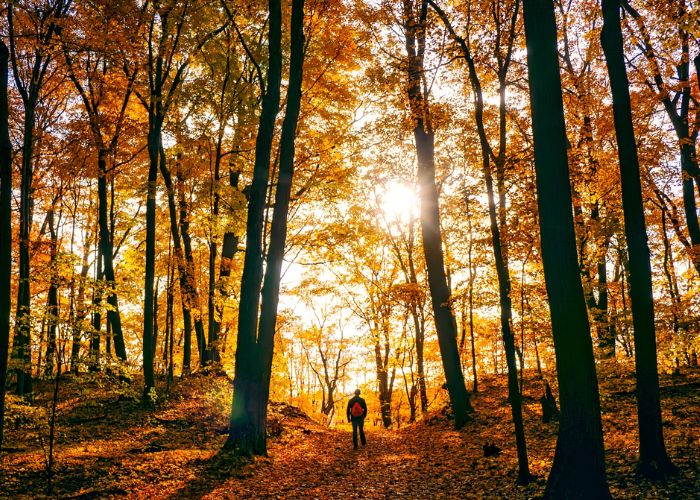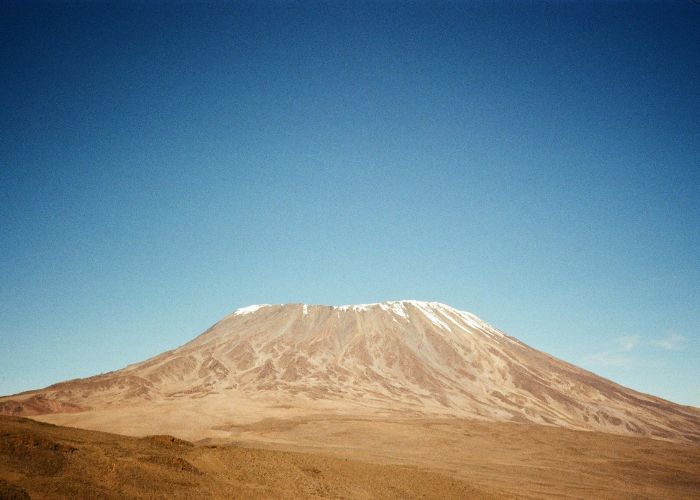Camping 101: How Long Do Camping Gas Canisters Last?
- , by Laurence
- 13 min reading time
Discover the lifespan of camping gas canisters in Wood To Water's Camping guide. Learn crucial tips to maximise usage and safely handle camping gas.
When it comes to preparing for an outdoor adventure, knowing every detail about your gear is paramount. One question many novice campers grapple with is, "How long do camping gas canisters last?" This question is not only crucial for cooking meals and staying warm, but also for ensuring safe and efficient use of resources.
Join us as we delve into the lifespan of camping gas bottles, helping you make your camping experience a safe and comfortable one.
Understanding the Basics of Camping Gas Canisters

Let's delve into the fundamentals of camping gas canisters. It's important to understand the functionality and longevity of these helpful little canisters, and there are essentials you need to know about their usage and conservation for an efficient camping experience.
What Are Camping Gas Canisters?
Camping gas canisters, also known as fuel canisters, are portable, compact containers filled with a gas mixture, usually propane, butane, or isobutane. These canisters are specifically designed for outdoor use, typically for camping stoves or lanterns.
The lifespan of a camping gas canister depends on various factors, including its size, the efficiency of your camp stove, and the environmental conditions.
A standard 220g canister can last anywhere from 2 to 4 hours of continuous cooking time.
However, it's important to note that cold weather can significantly decrease the canister's life as the fuel doesn't vaporise as well. We recommend that you always carry extra canisters to ensure you don't run short of fuel during your camping trip.
The Role of Gas Canisters in Outdoor Camping
Gas canisters play an essential role in outdoor camping, offering a reliable and convenient source of energy. They are primarily used to power camping stoves, enabling campers to cook meals, boil water, and even provide a source of warmth in colder conditions.
They also serve to fuel camping lanterns, providing necessary illumination during the night or in low-light settings.
The portability and compactness of these canisters make them a perfect fit for outdoor explorations where carrying weight is an important consideration.
Factors Affecting the Lifespan of Gas Canisters

The longevity of gas bottles can be influenced by a range of internal and external factors. While the type of gas, canister design, and usage play an internal role, external conditions such as weather, altitude and temperature can also impact the lifespan. Understanding these factors can help optimise the performance and longevity of these canisters during outdoor adventures.
Impact of Temperature on Gas Bottle Performance
Temperature significantly influences the performance of camping gas canisters. In warmer conditions, the gas in the canister remains pressurised, ensuring efficient fuel discharge.
However, as temperatures drop, the pressure inside the canister decreases, leading to a less efficient fuel flow. This is because the gases used in camping canisters, such as propane, butane, and isobutane, rely on heat to vaporise and release energy.
In extreme cold conditions, the gas may not vaporise at all, making the canister practically useless. Thus, in cold weather, it's advisable to keep your canisters warm, perhaps by keeping them close to your body before use or by storing them inside your sleeping bag at night. Understanding the impact of temperature on your camping gas bottle can help optimise its performance and longevity, ensuring a smoother camping experience.
How Altitude and Weather Conditions Affect Gas Usage
Altitude and weather conditions can significantly affect the usage and performance of camping gas bottles. As the altitude increases, air pressure decreases. This reduced air pressure impacts the pressure difference between the outside atmosphere and the gas inside the canister, which can slow down the release of gas, making your stove less efficient.
Weather conditions can also have a significant effect on the gas usage of camping gas canisters. The most common weather conditions that can affect your gas canister are:
- Cold Weather: As temperatures drop, the pressure inside the canister decreases, leading to a less efficient fuel flow. In extreme cold conditions, the gas cannot vaporise at all, which renders the canister useless.
- Windy Conditions: Wind can disrupt the heat being produced by the canister when it's attached to your stove. This means that more gas is required to get your stove to a reasonable cooking or boiling temperature.
- Rainy or Humid Conditions: The amount of moisture in the air can affect the temperature of the flame produced by your canister. The more moisture there is, the lower the temperature will be. This means more fuel will be required for the canister to cook effectively.
Read More: COLD-WEATHER CAMPING HACKS: HOW TO KEEP WARM ON A BUDGET
Types of Camping Gas Canisters and Their Durability

Many campers ask, "How long does a gas bottle last?" and while this is an important question when planning your camping trip, there are different types of camping gas bottles that you can get for your stove.
Of course, the size of the canister will have an effect on how long it lasts, but the type of gas in the canister can also affect the lifespan and durability of the canister.
Butane vs. Propane vs. Isobutane: Which Lasts Longer?
| Gas | Properties |
|---|---|
| Butane Gas | Butane is a commonly used fuel in camping gas bottles. It is lighter than propane and easy to store due to its lower pressure at room temperature. However, butane's performance drops significantly in colder temperatures (below 0°C), causing it to vaporise slowly or not at all, which leads to inefficient fuel usage and can affect the overall lifespan. |
| Propane Gas | Propane is another standard fuel for camping canisters. It performs admirably in colder temperatures and maintains pressure better than butane, meaning it can provide a consistent fuel flow even in freezing conditions. However, propane's higher vapour pressure requires sturdier (and heavier) canisters. In terms of burn time, propane generally doesn't last as long as butane because it burns hotter and faster. |
| Isobutane Gas | Isobutane is often considered the best of both worlds. It is lighter than propane, performs better in cold weather than butane, and it maintains consistent pressure, providing a steady fuel flow. This balance of properties often results in isobutane lasting longer than the other two gases, making it a popular choice for campers. |
Each type of gas used in camping canisters has its unique properties and performance characteristics which impact their longevity. Our camping experts have compared the most
Each type of gas used in camping canisters has its unique properties and performance characteristics which impact their longevity. Our camping experts have compared the most popular types of camping gas to see which lasts longer. Ultimately, while butane is a good choice for warm-weather camping and propane performs better in colder conditions, isobutane generally offers the most consistent performance across a range of conditions and tends to last longer when used with a camping stove.
However, how long the bottle lasts will still be influenced by other factors, such as the efficiency of the stove you are using and the weather conditions you are camping in.
Maximising the Efficiency of Your Camping Gas Canister

To ensure the most efficient usage of your camping gas cylinder, there are several strategies you can employ.
- Always use a windscreen or find a sheltered location when cooking. This practice can reduce the influence of wind that might blow away the heat produced by your stove, thus requiring less gas to cook your food or boil water.
- Consider using a heat reflector under your stove to send any lost heat back towards your pot, enhancing the heat efficiency.
- Regular maintenance of your camping stove is vital – clean it after use to avoid build-up that could clog the burners and impact efficiency.
- Always ensure that the pot is appropriately sized and placed centrally on the stove. Too small a pot won't efficiently capture the heat, while a pot that's too large might direct heat onto your stove, causing it to waste fuel.
- Remember to keep the flame at the lowest possible setting to still provide the heat you need. A smaller flame uses less fuel, extending the life of your canister.
Adopt these practices for your future camping trips, and you'll see a noticeable extension in the life of your camping gas canisters.
Safety Tips for Handling and Storing Gas Canisters
Whenever you're using a gas bottle for your heat source on your camping trips, it's important to use it properly and adhere to appropriate safety practices to help keep you and your campmates safe. Most of this will be common sense to you if you're an experienced camper, but a refresh doesn't hurt!
Best Practices for Safe Gas Canister Storage

Storing camping gas canisters safely is incredibly important, not only to ensure the longevity of the canisters but also to prevent any accidents or damage. Here are some best practices for safe gas bottle storage:
- Storage Location: Always store your camping gas bottles in a cool and dry place, away from direct sunlight and heat sources. Extreme heat can cause the pressure inside the canister to rise, potentially leading to a rupture or explosion.
- Keep Them Upright: Store your gas cylinders upright. This position helps maintain the integrity of the canister and prevents any leakage of the gas.
- Use a Ventilated Area: Ensure the storage area is well-ventilated. In case of any accidental leakage, a well-ventilated area will help disperse the gas and reduce the risk of fire or explosion.
- Keep Away From Heat Sources: Do not store a gas cylinder near flammable materials. Keep them away from open flames, sparks, and any equipment that could generate heat or an electrical charge.
- Keep it Sealed: Always ensure the canister is completely sealed before storing. Any residual gas can be a fire hazard.
- Regularly Check For Corrosion: Regularly check your canisters for any signs of corrosion or damage. If you find any, dispose of the canister safely and do not use it.
Avoiding Common Hazards with Gas Canisters in Camping

While a camping gas bottle is largely safe to use, it's important to be aware of potential hazards and how to avoid them. Here are some tips to ensure safe usage of gas canisters during camping:
It is important to handle the canister with care to avoid causing any damage. Avoid dropping the canister or subjecting it to extreme physical stress, as this can result in leaks or even explosions.
Before using the canister, make sure to check for any leaks. You can do this by applying a soap-water solution to the surface of the canister. If you notice bubbles forming, this indicates a leak. Never use a canister that is leaking.
Using a canister stabiliser can prevent the stove from tipping over and causing a fire. This is particularly crucial when cooking on uneven surfaces.
Once a canister is empty, ensure that you dispose of it properly. Do not simply throw it in a regular trash bin. Some recycling centres accept empty camping gas canisters.
By being mindful of these safety tips, you can ensure that you have a safe and enjoyable camping experience. Remember, it's always better to be safe than sorry when dealing with flammable materials in the great outdoors.
Find the Ideal Gas For your Camping Trip at Wood To Water
Gas bottles are an incredibly useful piece of equipment to have on any camping trip. They have so many practical uses beyond simply cooking and boiling water that can help make your trip more enjoyable and safer. Here at Wood To Water, we stock a wide range of gas camping stoves and gas canisters for your stove.
If you have any further questions about gas bottles, feel free to reach out to our team, who will be happy to try and help you.
FAQs
Do Camping Gas Cylinders Go Out Of Date?
How Can I Make Sure My Camping Gas Bottle is Safe?
Can I Minimise the Effect of Weather on My Camping Gas Bottle?
How Many Gas Canisters Should I Take on My Camping Trip?
Tags
Little more reading time?
-

, by Laurence Kay The Ultimate Dolomites Hiking Guide
-

, by Laurence Kay UK Foraging Guide: How to Stay Safe Outdoors
-

, by Laurence Kay A Hiker’s Ultimate Guide to Climbing Kilimanjaro



